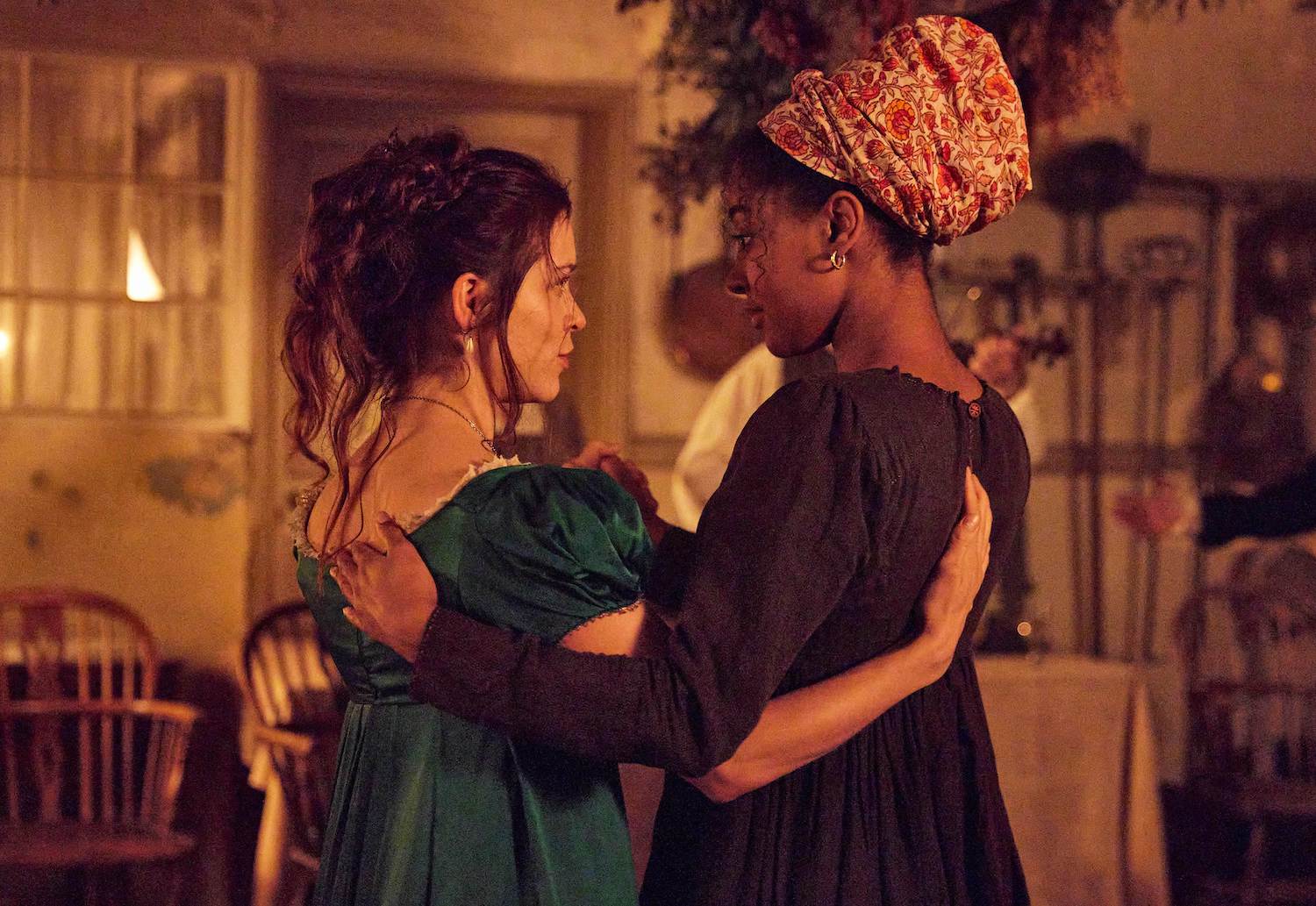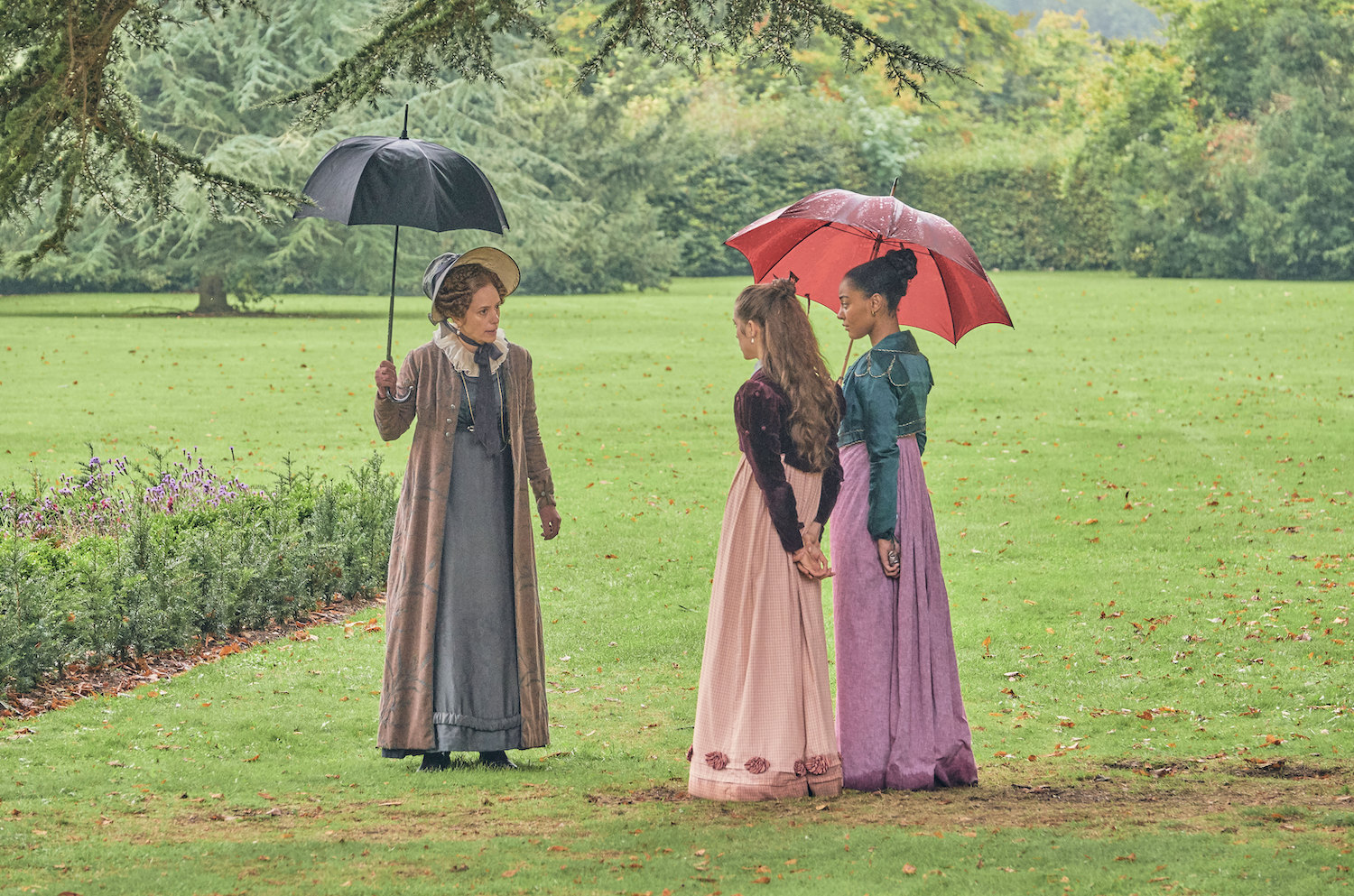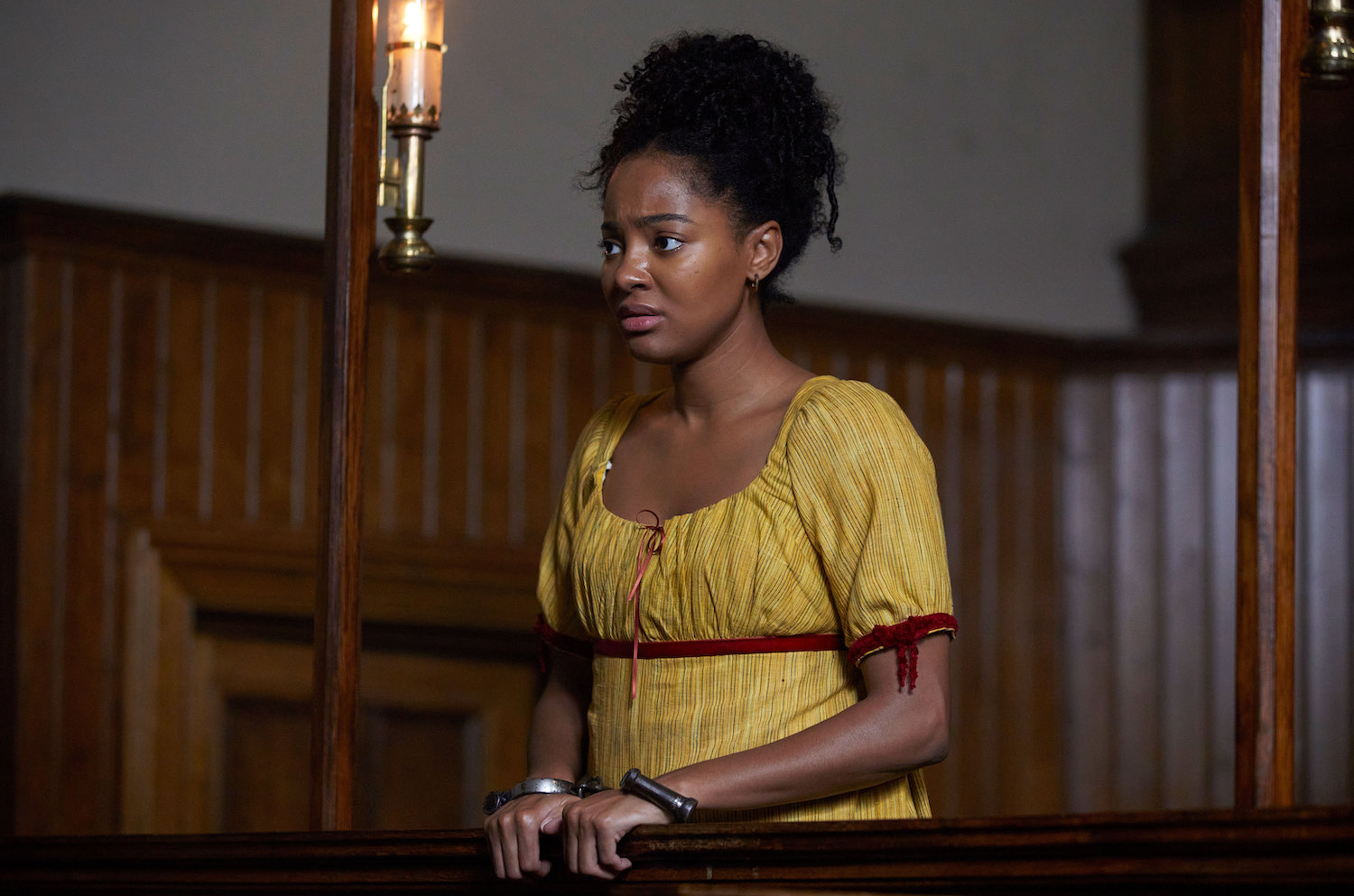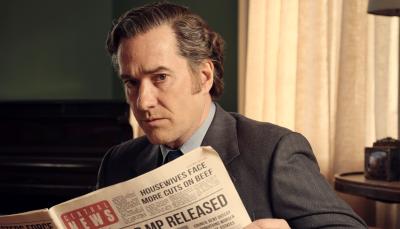'The Confessions of Frannie Langton' Is Precisely the Kind of Period Drama We Need More Of
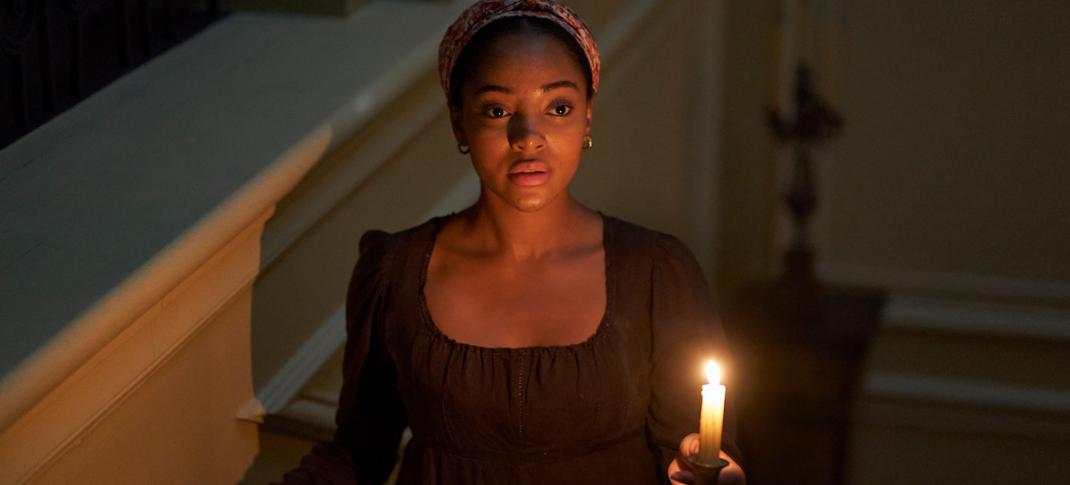
Karla-Simone Spence in "The Confessions of Frannie Langton"
(Photo: BritBox)
It's possible, perhaps even likely, that you haven't heard of the period drama The Confessions of Frannie Langton, which arrives on BritBox in early March. But this four-part series may be one of the best shows — of any genre — you'll see on television this year.
A story that's one part murder romance, one part historical drama, and one part murder mystery with a heaping dose of Gothic vibes on top, The Confessions of Frannie Langton does much more than simply cross genres to tell its story. It works to completely upend our ideas about what sorts of stories these kinds of shows should be telling in the first place, firmly putting marginalized characters at the center and wrestling with complex philosophical themes.
After all, it's a truth universally acknowledged that period dramas all too rarely feature characters of color, to begin with — let alone cast them in leading roles. Too many like to pretend that characters from marginalized or oppressed groups didn't exist in everyday life of history. Black characters too often only exist in slave stories, which are almost always tragedy porn. These tales hyper-focus on violence, suffering, and misery, as though the most interesting thing about their lives was that they were enslaved. Frannie Langton aims to change all that, giving us a heroine who, yes, is a former slave but also a woman with agency and desires of her own, full of joy, rage, and love.
And the end result is a deeply powerful one — a story that's both disturbing and romantic, uncomfortable and empowering all at once.
The series follows the story of the titular Frannie Langton (Karla-Simone Spence), a young Black woman on trial for murder after waking up alongside her dead mistress Marguerite (Sophie Cookson), covered in blood. Downstairs, Marguerite's husband, George Benham (Stephen Campbell Moore), has been stabbed to death. And though she's immediately arrested and accused of being responsible for deaths, Frannie can't remember what happened, thanks to the laudanum she'd regularly been indulging in. She doesn't know whether she's guilty or not.
The Confessions of Frannie Langton subsequently unfolds in two timelines — one set in the present day, as a jailed Frannie awaits her trial. The other is told in the form of her self-narrated life story, which fills us in on her origins, her journey to England, and how she became involved with the Benhams in the first place. Spoiler alert: She was gifted to them, a twist that means to highlight the strange historical grey period in which the story is set, between 1807, the point at which the U.K. abolished the international slave trade, and 1833, when emancipation gradually set all enslaved people free, a time in which many Black people were still exploited and forced to work demeaning jobs without pay.
Frannie learned to read while growing up on a Jamaican plantation and was educated by her former master, the odious John Langton (Stephen Mackintosh), who forced her to help him with the horrific science experiments aimed at proving people from Africa were somehow not human — or who were at the least demonstrably inferior to whites. Frannie's shame and complicity in these acts haunt her for the rest of her life, even as it becomes increasingly apparent that she also enjoyed the associated privileges her participation granted her in other areas of her life. (Frannie is educated and opinionated and, as her master's right-hand assistant, is used to being heard and obeyed more than many other women in her situation.)
Frannie's relationship with Marguerite Benham (whom she calls "Madame") begins over their shared enjoyment of books and reading and quickly develops into something more overtly sexual. Yet, nothing about their forbidden romance feels exploitative or titillating. Instead, it is the story of two oppressed and stifled people who find something like catharsis and freedom in one another. It's doomed from its first moments, as almost all great romances in stories like this are, and your mileage will almost certainly vary regarding whether you think their feelings are real, true, or good for one another. (But, then again, what Gothic romance isn't slightly toxic?)
Spence and Cookson have delightful chemistry with one another, a genuine affection that allows both women a space to exist outside the anger they carry toward a world that seems determined to restrict or otherwise control their choices. And neither character spends much time wrestling with the shame that so many period dramas often seem to attach to same-sex relationships. Rather, their feelings for one another are taken as a given, an aspect of both their lives that's as straightforward and factual as any other.
Amarah-Jae St. Aubyn is another series standout as brothel owner Sal, who offers Frannie both a path of financial and emotional escape at various points in the story. Her character not only offers an intriguing look at how Black women during this period were able to achieve a certain amount of independence and control over their lives by becoming sex workers but gives Frannie a critical space in which to be vulnerable and to express some of the anger and fear she so often swallows and holds inside.
The Confessions of Frannie Langton repeatedly subverts our expectations about what we expect stories like this to be and do, from its forthright honesty about the brutality often experienced by Black people in the Georgian era to its unapologetic embrace of queer characters and romance. But rather than sensationalize these characters' stories, the show uses their experiences to weave a complex picture of how so much of society has long oppressed and occasionally demonized anyone it deems even slightly inferior or lesser.
Marguerite is a wealthy aristocrat's wife, yet she has almost no control over her own life or future and is in many ways as in thrall to her husband's whims as Frannie or Laddie (Patrick Martins) are. And, despite the widespread desire of many in nineteenth-century London to be seen as progressive and advanced, particularly regarding issues of race and the specter of slavery, the series pulls no punches about the various ways that racism, colonialism, and oppression linger long after abolition. Frannie, who has been taken by and gifted to multiple white people throughout her life, may technically be considered free. However, she still spends her days laboring under a different kind of ownership in a world that largely refuses to see her as an equal to the white people around her.
That the story keeps us guessing about the truth of Frannie's guilt or innocence almost until its final moments is another unexpected but surprisingly effective twist. After all, the point of the story isn't so much whether Frannie did the things she was accused of or not (though the series handles those revelations with surprising deftness), but that she is, at last, allowed to speak for herself, define her own experiences, and give public voice to the rage she's carried for so long.
The Confessions of Frannie Langton is not a particularly easy watch, but it nevertheless feels like an incredibly important one, both in terms of the power of its own story and its more prominent place within a genre that is still working on telling historical stories featuring diverse and/or marginalized characters. Here's hoping we see many more like it in the years to come.

